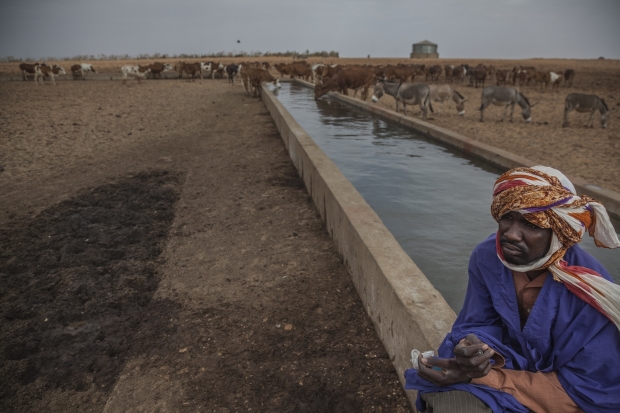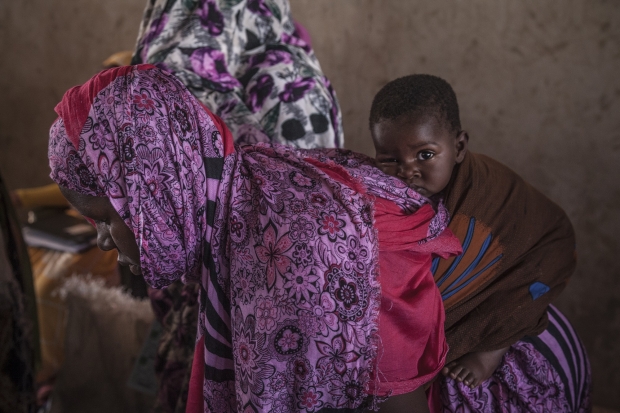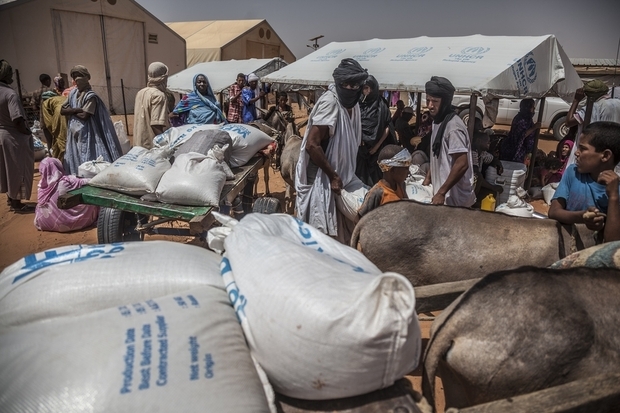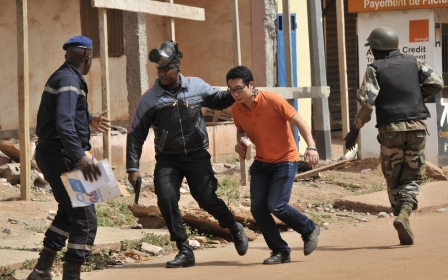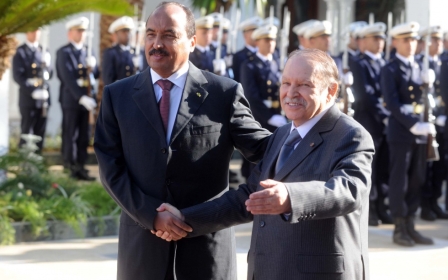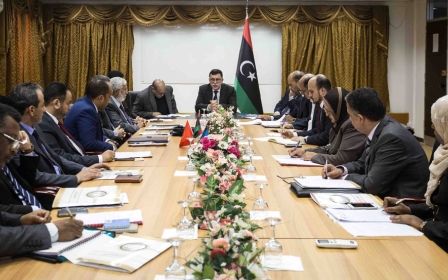'The Sahel is on fire': The Malian refugee crisis the world forgot
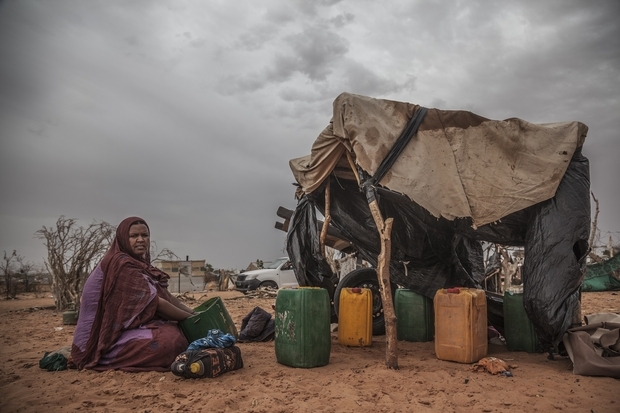
MBERA, Mauritania - The noon sun punches through the shroud of a leaden sky to beat mercilessly on the barren desert. What breeze drifts over the sand grits rather than soothes the eyes. Rain has not fallen here for two years.
When people move, they do so slowly; others curl up in whatever shade they can find to catch a nap. Faces project hunger and lethargy. The last few days of Ramadan are ahead, the final slog of an unforgiving month in an unforgiving environment.
But in this vast refugee camp in Mbera, 50km from the Malian border in Mauritania, 15-year-old Roghietou Himavi Valed does not complain. Her nomadic Tuareg people are used to a harsh life, a struggle that has only intensified in four years of war.
The fall of Muammar Gaddafi in 2011 sent Libya into freefall, and spread chaos across northern Africa. Weapons poured into northern Mali and emboldened Islamic militias in the Sahel – one of the world's hottest, driest and least stable regions – to spread their influence over a number of towns and villages.
Mali's army refused to aid the native Tuareg, whose own rebels were fighting a decades-long bid for autonomy from Bamako. Instead, civilians found themselves fleeing all sides to escape the crossfire.
A French intervention helped foil the rise of the Islamic militias but the war still rages in the Sahel, and camps like Mbera, a ramshackle affair now home to more than 40,000 people, are the result.
But Roghietou does not complain.
"We had to leave our home when I was a little girl. Every time I hear my village being mentioned, I am overcome with nostalgia," she says of her home near Timbuktu. "But here, I have everything I need. My entire family is with me. I don't think much about the future. Whatever will be, will be."
For one thing, there is education. Roghietou never went to school in her village - the nearest was a 6km slog - and she has only learned to read and write in exile, thanks to the efforts of humanitarian organisations in Mbera.
But aside from a few aid groups, this place is largely forgotten by the rest of the world as it fixates on the flow of refugees from Syria and Iraq. Mauritania is officially custodian of these 40,000 people but there are next to no officials to be seen.
All the bigger trees are gone, cut down for fuel or shelter, accelerating soil erosion and destroying the last vestiges of fertile land as the Sahara marches south a few kilometres a year. Dead animals litter the landscape and those left die of thirst and hunger every day.
The people of Mbera are on their own facing years in exile, drought and famine. Their one saving grace is a limited supply of underground water, perhaps the only reason the camp has grown at this place, but even that is running out.
Osman Ag Abi, a 47-year-old teacher originally from Timbuktu, says his people are resigned to a life beyond anything they knew before.
"It is clear we won't be able to return home for a long time," he says. "A number of people decided to go back, but every one of them sent word we’d do best to stay here. There is still a war going on. We all know what is taking place in the Sahara desert. The Sahel is burning. Crime, banditry, jihadism, the racism of the Malian army… We are safe here."
Safe, but changed forever.
"We are nomads," says his colleague Ahmed Ah Hamama, 73. "We follow our animals and we have little use for infrastructure. Here in the camp, our way of life has profoundly changed. We are stuck in one place, and we have slowly been turning into farmers. I have no idea what will become of us.
"Through socialising, we are getting acquainted with what they call civilisation. It is not necessarily a good thing."
On the most profound level, the refugees are as much a victim of war as of climate change. The tragedy of the Sahel region – a toxic cocktail of climate change, organised crime, ethnic and religious strife, international military interventions and hopelessly porous borders - is certain to escalate.
Being almost completely ignored by the rest of the world continues to have a profound impact on the Tuareg of Mali. Among the refugees there is constant talk of food shortages. The UN's World Food Programme had been forced to cut its food portions to one third due to lack of money.
Olivier Mirindi, a member of UNICEF's team in Bassikonou, said the lack of international recognition was affecting what aid organisations can do.
"The war in Mali is virtually forgotten. This means our budget here is in great trouble. Our capacities are severely limited. We were forced to let go many of our workers," he said.
"Serious limitations were also placed on the amount of food we can provide. And all we expect from the future are more cuts. The situation could deteriorate to the point where people's lives will come under threat."
Sebastian Laroze, the UN Refugee Agency spokesman for Mauritania, agreed. "The cuts mean the camp's very existence is in jeopardy. And things are not likely to get better."
UNHCR's projects are co-funded by the ECHO, the EU's directorate for European Civil Protection and Humanitarian Aid Operations. Without ECHO's financial assistance, the Mbera camp would probably face closure. But where would the people go?
Muhamad al-Maloud, 24, says there is nowhere. "We all want to go to Europe, but we don't have the funds. And we're all nomads - have you ever met a nomad with all the necessary papers?" he said.
"All of us are in the same situation. Northern Mali is ruled by terrorism and banditry. The Tuaregs and the Arabs are persecuted by both the jihadists and the Malian army.
"We have been stripped of everything. The Bamako authorities have always neglected us. Our entire generation has been sentenced to a life hardly worth living.
"In northern Mali, every family wakes up with one goal on their mind – how to find water. That's hardly living, is it?
"That is why so many of the young people joined the rebels. Here in this camp, each family has someone who had joined the fighting. Those men are the freedom fighters. They are fighting for independence."
And none of this is new. Mali has seen four uprisings since it won independence from France in 1960, all in the northern regions. The worst was the Tuareg rebellion of 1990 to 1995, which turned into civil war and combined with famine and a refugee crisis similar to today.
Fatma Mint Sidi, 47, originally from the Tuareg settlement of Lere, spent six years as a refugee in that earlier uprising.
"Back then I didn't have children, and my husband was still alive," she said as she batted away flies circling under her sizzling tarp. When she returned to her hometown it had been completely destroyed, and not only through war - the desert had encroached to cover it with sand.
"I realise nothing lasts forever, but I didn’t expect another war. The last one had completely changed my worldview. In the old days, we all used to help one another.
"It's much worse now than in the 1990s. There's less food and more people. The humanitarian organisations do provide help, but there isn't enough of it to go around. Sometimes the food runs out, and I have a large family to feed."
"Now I have to do everything by myself. Whatever happens is in God's hands."
Reporting from the Mbera refugee camp was made possible by the help of The European Journalism Centre (EJC)
Stay informed with MEE's newsletters
Sign up to get the latest alerts, insights and analysis, starting with Turkey Unpacked
Middle East Eye delivers independent and unrivalled coverage and analysis of the Middle East, North Africa and beyond. To learn more about republishing this content and the associated fees, please fill out this form. More about MEE can be found here.



